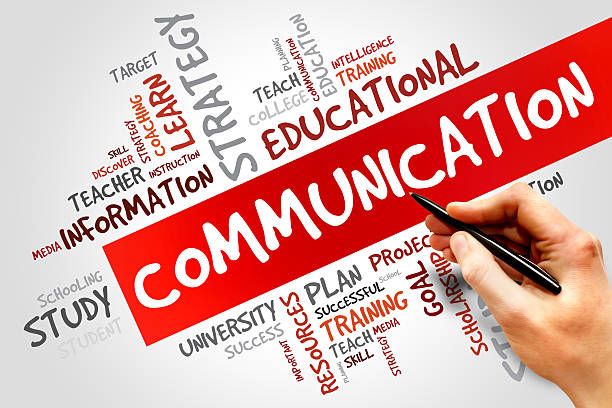Coursework writing is often viewed merely as an academic obligation. However, its impact extends far beyond the classroom. It serves as a critical training ground for developing essential communication skills. For students, even those seeking professional biomedical engineering coursework help UK, the process hones the ability to articulate complex ideas with clarity and precision. These skills are invaluable, transforming academic tasks into fundamental tools for effective professional self-expression and successful interaction.
The Foundation of Clear Written Communication
Mastering Grammar and Syntax
Regular coursework writing demands adherence to proper grammar and syntax. This consistent practice ingrains correct language structures, reducing errors over time. You learn to construct sentences that are not only correct but also clear and impactful. This foundational skill ensures your written message is understood exactly as intended, preventing misinterpretation.
Developing a Formal and Academic Tone
Academic assignments require a specific, formal tone. This teaches you to adjust your writing style to suit different audiences and contexts. You learn to convey complex ideas with authority and professionalism. This adaptability is crucial for professional communication, from official emails to detailed reports.
Enhancing Vocabulary and Precision
Researching and writing on diverse subjects naturally expands your vocabulary. You are compelled to find the most precise words to convey nuanced arguments. This prevents vague language and promotes eloquent expression. A rich vocabulary allows for more persuasive and sophisticated communication.
Structuring Thoughts and Arguments
The Art of Creating a Logical Outline
Every strong piece of coursework begins with a structured outline. This process forces you to organize scattered thoughts into a coherent sequence. You learn to prioritize main points and supporting evidence logically. This skill is directly transferable to planning presentations, proposals, and even structuring complex conversations.
Crafting Persuasive Thesis Statements
A thesis statement is the backbone of any academic paper. Formulating a strong, debatable thesis requires clear, concise thinking. It teaches you to distill a complex argument into a single, powerful sentence. This ability to get straight to the point is highly valued in all forms of professional dialogue.
Building Coherent Paragraphs and Transitions
Coursework teaches the importance of flow. Each paragraph must present a single idea and smoothly connect to the next. Mastering transitional phrases ensures your writing is fluid and easy to follow. This skill is essential for creating documents that guide the reader effortlessly through your reasoning.
Research and Critical Analysis
Sourcing Credible Information
Effective coursework relies on credible evidence. You learn to critically evaluate sources for reliability and bias. This hones your ability to distinguish fact from opinion, a vital skill in an era of information overload. It ensures your communication is always backed by trustworthy data.
Synthesizing Information from Multiple Sources
You must blend information from various sources into a unified argument. This synthesis involves comparing, contrasting, and connecting different viewpoints. It develops your ability to see the bigger picture and communicate a well-rounded perspective, a key asset in collaborative environments.
Integrating Evidence Seamlessly
Learning to paraphrase, quote, and cite evidence properly is crucial. It teaches you to integrate supporting material without disrupting your narrative’s flow. This skill ensures you can strengthen your claims with evidence while maintaining a smooth and professional writing style.
Feedback and the Revision Process
Learning from Constructive Criticism
Submitting drafts for feedback is a core part of coursework. Receiving and interpreting critiques teaches you to view your work from another’s perspective. This builds humility and openness to improvement, which are essential for effective collaborative communication and personal growth.
The Importance of Self-Editing and Proofreading
The revision process trains your eye for detail. You learn to self-edit for clarity, conciseness, and errors. This meticulous attention to detail ensures the final product is polished and professional. It cultivates a habit of double checking your work before dissemination.
Developing Resilience and Adaptability
Not all feedback is easy to hear. The process teaches resilience and the ability to adapt your work based on input. This mirrors professional scenarios where you must incorporate feedback from colleagues or clients to achieve a better collective outcome.
Application Beyond the Classroom
Professional Email and Report Writing
The formal writing skills honed through coursework are directly applicable to the workplace. Crafting clear, concise, and professional emails or comprehensive reports becomes second nature. This professionalism enhances your credibility and ensures your internal and external communication is effective.
Effective Presentation and Public Speaking
Structuring a written argument is similar to structuring a speech. The clarity of thought developed in essays translates into clear verbal presentations. You learn to present complex information in an organized, persuasive manner, boosting your confidence in public speaking scenarios.
Improved Interpersonal and Collaborative Skills
Group projects and peer reviews are common in coursework. These activities require clear communication, active listening, and respectful negotiation of ideas. They directly prepare you for the teamwork and collaboration that define most modern professional environments.
Conclusion
Coursework writing is far more than an academic exercise. It is a comprehensive training program for the mind, sculpting your ability to communicate with clarity, precision, and persuasion. The skills developed structuring arguments, critical thinking, and incorporating feedback are lifelong assets. They empower you to succeed in your career and engage in more meaningful, effective dialogue in every aspect of your life.
Frequently Asked Questions (FAQs)
How does coursework improve verbal communication?
Coursework structures your thinking, which directly improves how you articulate ideas verbally. Clear writing leads to clearer, more confident speaking.
Can these skills help in a job interview?
Absolutely. The ability to structure answers logically and present ideas persuasively is crucial. It demonstrates clarity of thought and strong communication skills to employers.
Does coursework help with non-academic writing?
Yes, it teaches foundational skills like tone, structure, and clarity. These are directly applicable to professional emails, reports, and even creative writing projects.
How does feedback on essays improve communication?
Feedback provides an external perspective on your clarity and logic. Learning to process and apply critique makes you a more adaptable and effective communicator.
Is teamwork in coursework beneficial?
Yes, collaborative projects mirror real-world teamwork. They enhance skills in negotiation, delegation, and clear interpersonal communication, which are vital in any career.


